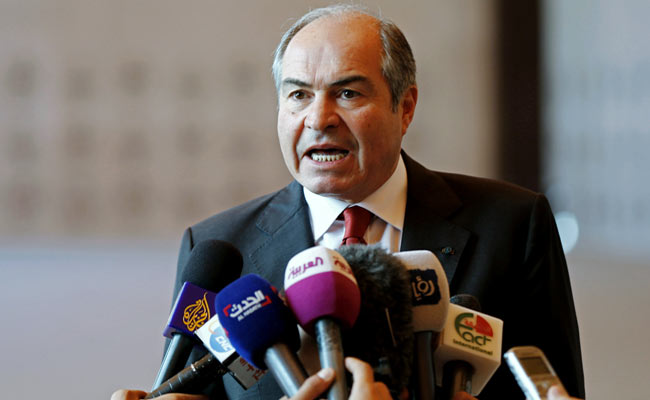
Hani Mulki (File photo)
Jordan's Prime Minister Hani Mulki on Monday submitted his resignation to King Abdullah II after five consecutive days of massive protests against his administration's IMF-backed austerity measures.
In return for getting $700 million in extended fund facility, the kingdom was required by the IMF to adopt a series of economic "correction" programs characterized by austerity. The IMF periodically sends delegations to review the program so as to decide whether or not to proceed with the funding. In order to meet IMF requirements on public debt ratio, the Mulki administration proposed a new law: anyone with an annual income of $11,000 or above would have to pay income tax, while businesses would face steep tax hikes. The law significantly increased the burden on Jordan's middle class and the poor, which acted as the trigger for the demonstrations.
This is not the first time that IMF financial aid has ended up creating a fracas. Six years ago, also in Jordan, several days of civil unrest took place against tough IMF-imposed austerity measures that included axing of fuel subsidies. In an attempt to secure a $12 billion three-year loan from the IMF, Egypt has kept a lid on state budget deficit by cutting subsidies, introducing new taxes and liberalizing the Egyptian pound over the past two years. As a result, the same period witnessed a noticeable escalation in inflation rate and repeated rumors of a surge in prices in Egyptian society, the latest one during this year's Ramadan.
Even according to IMF economists, financial crises around the world have increased over the past 25 years, a period in which the IMF has committed record high resources to eliminate them. In many cases, the recipients of IMF loans are worse off afterward than before. Why does an assistance intended to bring developing countries back to prosperity usually push them off the road?
The reason is simple. Financial crisis usually occurs as a consequence of poor policymaking and even corruption. If the IMF were to bail out a country from a forthcoming crisis, it would provide an opportunity to the country's political leadership to shrug off their responsibility for economic mismanagement. The leaders may thus lack motivation to streamline governance. More importantly, the IMF has not paid so much attention, as is claimed, to improving financial structures in developing countries, but too much on expensive bailout operations, more exactly, the repayment of bailouts.
Argentina is one of the highest recipients of IMF funds and perhaps the most infamous example of IMF failure. Over $26 billion in IMF loans since 1958 has led to neither substantially open markets nor sophisticated industrial system. Argentina's GDP per capita has not changed much since then.
Two lessons from the Argentina case could be applied to all IMF lending. For one thing, bailouts, if repeated, would become predictable. That is, investing in the recipient country would bring a de facto IMF-endorsed profit regardless of how poor the economic conditions were. For the other thing, the government of the recipient country lacks the incentive to reform, because the money would still come in as long as IMF requirements are met. Instead of bolstering public finance through structural reform, the most cost-effective way would be slashing expenditure on education and social security.
With more emerging markets joining in, it is time IMF maximized institutional effectiveness, strengthened accountability for lending decisions and limited interference into sovereign economic affairs. Such reforms, while revitalizing the IMF in global economic governance, would help bring more societal stability and economic growth in the third world.


